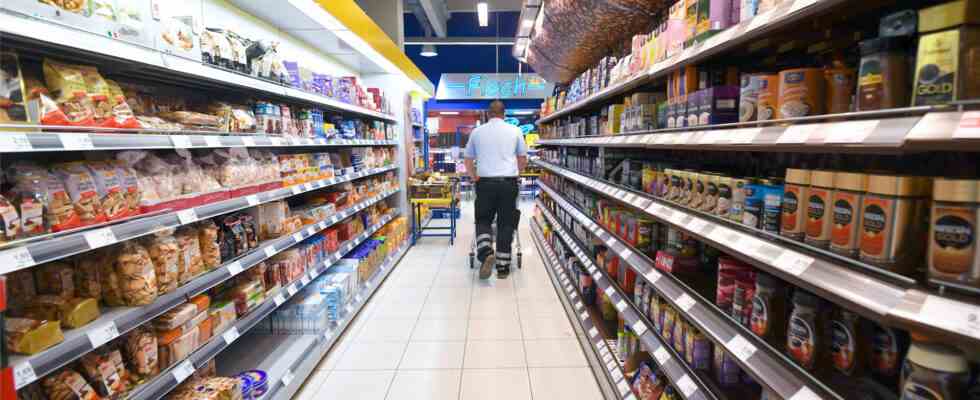Status: 13.10.2022 10:30 a.m
Food has become much more expensive in recent months. Is that why more is being stolen from supermarkets? There is currently no clear evidence of this.
Shoplifting is not an issue that retail chains like to talk about. “Basically, no information is given on the frequency of theft in our branches,” says Lidl, for example. Rewe, Edeka and Aldi Süd also leave the relevant questions tagesschau.de unanswered. According to the HDE trade association, there are no shoplifting figures for the current year.
“One or the other sausage disappears”
At most, traders express themselves sporadically. Kati Sommer, who runs two Rewe branches in Magdeburg and is also President of the Saxony-Anhalt trade association, reports that there has been an increase in thefts by housewives and pensioners.
“They have to calculate with their wallets, and then one or the other sausage or one or the other bread disappears in an extra bag,” Sommer said mdr. She is also increasingly hearing about shoplifting from other retailers.
Prices have risen above average
One thing is clear: the rise in food prices is well above the already extraordinarily high rate of inflation. According to the Federal Statistical Office, food prices rose by 18.7 percent in September compared to the same month last year. The idea that economic hardship could drive people to steal something from the supermarket is therefore quite reasonable.
Apparently, this assumption is also shared by the retailers themselves. A study by the Cologne trading institute EHI states that the companies surveyed see “increasing risks of theft” due to rising prices. The survey took place in March and April, when price increases were not as high as they are now. Due to the sinking purchasing power, the “dishonest fulfillment of demand, say the dealers,” is what the study goes on to say.
Trade expert is skeptical
The author of the EHI study, Frank Horst, is skeptical that this will actually happen. He’s been studying retailers’ “inventory discrepancies” for years. These are goods that are missing from stock, although their sale has not been documented. Horst tries to record shoplifting that initially goes unnoticed and therefore does not appear in the crime statistics.
In the past, Horst says he has not been able to establish any connection between economic development and the number of shoplifters. When many refugees came to Germany in 2015 and 2016, who initially lived on state benefits, this had no effect on the number of inventory differences: “Even in times of higher unemployment, there were no recognizable changes,” says Horst. “If people get poorer, it doesn’t necessarily lead to more theft.”
Higher security measures possible
The trade association HDE agrees with this point of view. Instead, he observes a change in buying behavior: “For example, more customers are looking specifically for special offers or are buying less than usual,” says HDE spokesman Stefan Hertel.
EHI retail expert Horst can imagine that retailers will take increased security measures if they actually find more thefts. “Up to now, only a few items – such as spirits or razor blades – have been particularly secured in food retailing,” says Horst. Security personnel are far less common in food retail than, for example, in electronics retail. The of tagesschau.de The retail chains surveyed did not want to comment on a possible increase in security measures.

